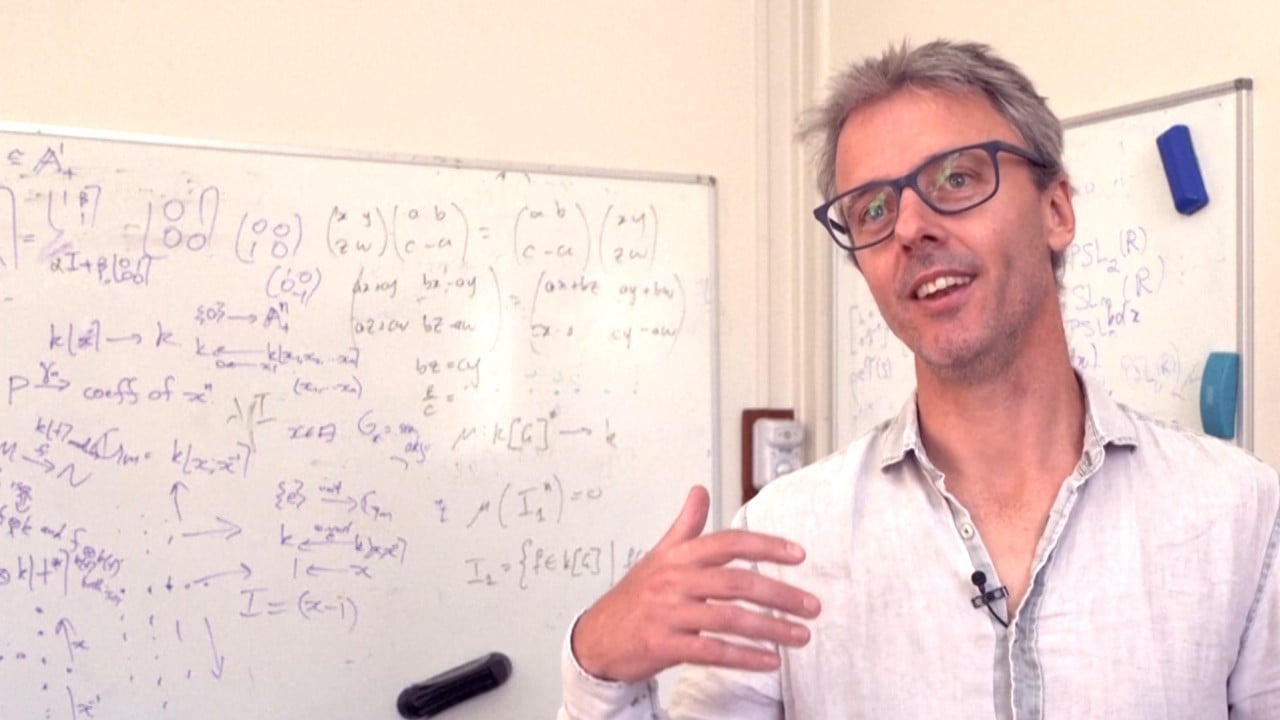
China has problems to solve before its mathematics research can rise above WWII levels, scholar says
- Celebrated mathematician Yau Shing-Tung says country’s mathematics research not yet at level of the US in the 1940s
- Older, more conservative scholars are out of touch with latest research trends, leading younger talent to fall behind global leaders
“For any powerful modernised country, its achievements in maths must be at the forefront,” the geometry expert said during a talk on the status and future of Chinese mathematics on April 30.
With an understanding that mathematics was the foundation of all modern sciences and technologies, Yau said the US began sending students to Europe to study the subject in 1880.
Within three decades, Americans started to make breakthroughs in maths under the leadership of George Birkhoff, one of the top mathematicians of his generation. The country also took advantage of the two world wars to absorb a large number of European mathematicians, Yau said.
By the 1960s, the US had become the world leader in mathematics research. “Currently, China’s mathematics has not reached their level in the 1940s,” he said.
Last year’s International Congress of Basic Science held in Beijing illustrated the gap. At the event, top experts were asked to select the 85 “best papers” that had been published by mathematicians over the previous five years – only six were from China, Yau said.
In contrast, more than 70 of the best papers were written by US professors.
“The assessment of prizes and promotions largely relies on domestic scholars rather than international experts. Those scholars are often older, more conservative, and not following the latest developments in the field closely enough,” he said.
As a result, younger scholars would tend to hold on to conventional thinking and gradually fall out of step with the global leaders in research, he said.
China’s system of generous rewards for scientists also had major drawbacks, Yau said. Over the past 10 years, if a young researcher in China won titles such as an “outstanding talent”, their salaries and allowances were to increase to levels exceeding those of most American professors, he said.

The approach “places too much emphasis on material rewards” and tends to encourage young researchers to work for titles instead of scientific advancements, he said.
Instead, Yau suggested “encouraging a small group of students to become world-class scholars, do breakthrough work, lead the academic community, and influence the development of maths over the next few decades”.
Yau is best known for his groundbreaking contributions to differential geometry, which helped solve the equation behind string theory, which is also known as the theory of everything. He was 33 when he became the first Chinese to win the Fields Medal, the mathematics equivalent of the Nobel Prize.
He is the only person to have won six top prizes in the field of mathematics, which also include the MacArthur Award, Crafoord Award, Wolf Award, Marcel Grossmann Award, and the Shaw Prize.


